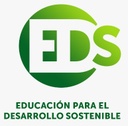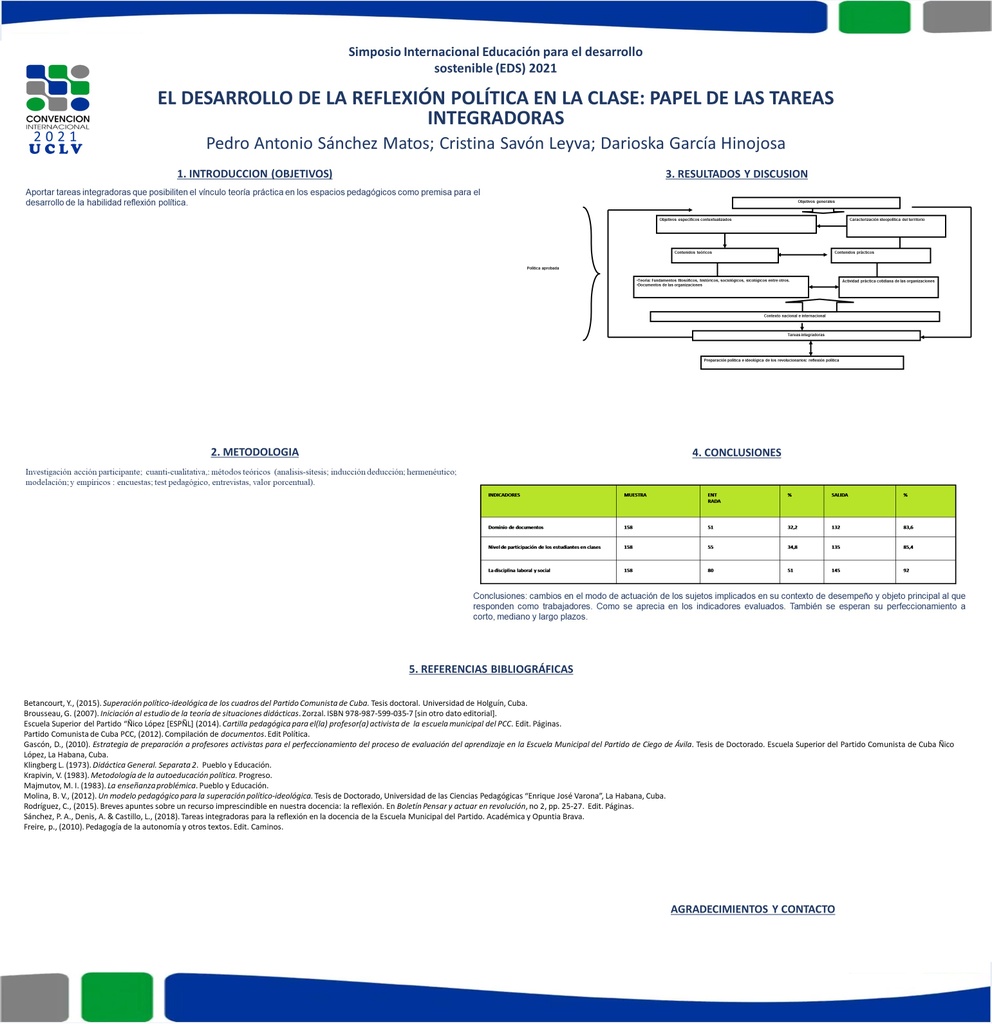Executive Secretary

International Symposium Education for Sustainable Development (ESD) 2021

ABSTRACT
Keywords: problem situation, political reflection, teaching-learning
In this work the authors address the problem of political reflection as a basic ability to form in a revolutionary pedagogy. It is intended to provide integrative tasks that enable the practical theory link in pedagogical spaces. For this, the theoretical methods were used: analysis and synthesis, induction and deduction, and modelation; the empirical ones: interviews, pedagogical test, observation and survey; in teaching: problems. As a contribution, the researchers allowed to analyze the aforementioned matter from some theoretical foundations, its praxis and the obtaining of the proposal in question. Meanwhile, the employees in the teaching practice ―problemic methods― allowed in the first place, the construction of the tasks from the praxis and secondly to demonstrate the effectiveness of the proposal. Therefore they facilitated raising the quality of the development of this skill. The work is configured as a result of the experiences applied in the 2013-2014 to 2019-2020 academic years, first in the Municipal School of the Party (EMPCC) and then in its generalization to the Yateras Municipal University Center (CUMY) in 2020 and 2021. The initial impacts are illustrated in the text and refer to changes in the mode of action of the subjects involved in their context of performance and main object to which they respond as workers. Its improvement is also expected in the short, medium and long terms.
RESUMEN
En este trabajo los autores atienden el problema de la reflexión política como habilidad básica a formas en una pedagogía revolucionaria. En él se pretende aportar tareas integradoras que posibiliten el vínculo teoría práctica en los espacios pedagógicos. Para esto se utilizaron los métodos teóricos: análisis y síntesis, inducción y deducción, y la modelación; los empíricos: entrevistas, prueba pedagógica, observación y encuesta; en la enseñanza: los problémicos. Como aporte, los investigativos permitieron analizar el asunto referido desde algunos fundamentos teóricos, su praxis y la obtención de la propuesta en cuestión. En tanto, los empleados en la práctica de la docencia ―métodos problémicos― permitieron en primer lugar, la construcción de las tareas desde la praxis y en segundo lugar demostrar la efectividad de la propuesta. Por tanto facilitaron elevar la calidad del desarrollo de dicha habilidad. El trabajo se configura como resultado de las experiencias aplicadas en los cursos 2013-2014 al 2019-2020, primero en la escuela Municipal del Partido (EMPCC) y luego en su generalización al Centro Universitario Municipal Yateras (CUMY) en el 2020 y 2021. Los impactos iniciales se ilustran en el texto y se refieren a los cambios en el modo de actuación de los sujetos implicados en su contexto de desempeño y objeto principal al que responden como trabajadores. También se esperan su perfeccionamiento a corto, mediano y largo plazos.
About The Speaker

MsC. Pedro Antonio Sánchez Matos







